Related Research Articles

The Berlin Wall was a guarded concrete barrier that physically and ideologically divided Berlin from 1961 to 1989. Construction of the wall was commenced by the German Democratic Republic on 13 August 1961. The Wall cut off West Berlin from surrounding East Germany, including East Berlin. The barrier included guard towers placed along large concrete walls, accompanied by a wide area that contained anti-vehicle trenches, beds of nails and other defenses. The Eastern Bloc portrayed the Wall as protecting its population from fascist elements conspiring to prevent the "will of the people" from building a socialist state in East Germany.

Batman is a 1989 American superhero film directed by Tim Burton and produced by Jon Peters and Peter Guber, based on the DC Comics character of the same name. It is the first installment of Warner Bros.' initial Batman film series. The film stars Jack Nicholson as the Joker and Michael Keaton as Bruce Wayne / Batman, alongside Kim Basinger, Robert Wuhl, Pat Hingle, Billy Dee Williams, Michael Gough, and Jack Palance. The film takes place early in the title character's war on crime, and depicts his conflict with the Joker.

Sir Charles Spencer Chaplin Jr. was an English comic actor, filmmaker, and composer who rose to fame in the era of silent film. He became a worldwide icon through his screen persona, the Tramp, and is considered one of the most important figures in the history of the film industry. His career spanned more than 75 years, from childhood in the Victorian era until a year before his death in 1977, and encompassed both adulation and controversy.

The French Revolution was a period of radical political and societal change in France that began with the Estates General of 1789 and ended with the formation of the French Consulate in November 1799. Many of its ideas are considered fundamental principles of liberal democracy, while phrases like Liberté, égalité, fraternité reappeared in other revolts, such as the 1917 Russian Revolution, and inspired campaigns for the abolition of slavery and universal suffrage. The values and institutions it created dominate French politics to this day.
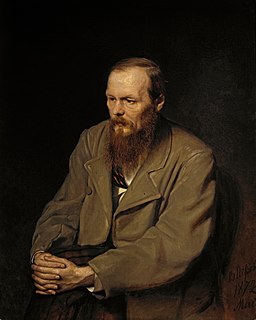
Fyodor Mikhailovich Dostoevsky, sometimes transliterated as Dostoyevsky, was a Russian novelist, short story writer, essayist, and journalist. Dostoevsky's literary works explore the human condition in the troubled political, social, and spiritual atmospheres of 19th-century Russia, and engage with a variety of philosophical and religious themes. His most acclaimed novels include Crime and Punishment (1866), The Idiot (1869), Demons (1872), and The Brothers Karamazov (1880). Dostoevsky's body of works consists of 12 novels, four novellas, 16 short stories, and numerous other works. Many literary critics rate him as one of the greatest novelists in all of world literature, as multiple of his works are considered highly influential masterpieces. His 1864 novella Notes from Underground is considered to be one of the first works of existentialist literature; this has resulted in Dostoevsky being looked upon as both a philosopher and theologian as well.
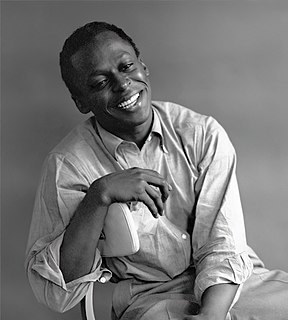
Miles Dewey Davis III was an American trumpeter, bandleader, and composer. He is among the most influential and acclaimed figures in the history of jazz and 20th-century music. Davis adopted a variety of musical directions in a five-decade career that kept him at the forefront of many major stylistic developments in jazz.

Paul Leroy Robeson was an American bass baritone concert artist, stage and film actor, athlete, and activist who became famous both for his cultural accomplishments and for his political stances.

Colonel Thomas Edward Lawrence was a British archaeologist, army officer, diplomat, and writer, who became renowned for his role in the Arab Revolt (1916–1918) and the Sinai and Palestine Campaign (1915–1918) against the Ottoman Empire during the First World War. The breadth and variety of his activities and associations, and his ability to describe them vividly in writing, earned him international fame as Lawrence of Arabia, a title used for the 1962 film based on his wartime activities.
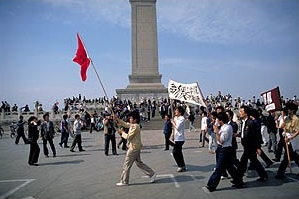
The Tiananmen Square protests, known as the June Fourth Incident in China, were student-led demonstrations held in Tiananmen Square, Beijing during 1989. In what is known as the Tiananmen Square Massacre, troops armed with assault rifles and accompanied by tanks fired at the demonstrators and those trying to block the military's advance into Tiananmen Square. The protests started on 15 April and were forcibly suppressed on 4 June when the government declared martial law and sent the People's Liberation Army to occupy parts of central Beijing. Estimates of the death toll vary from several hundred to several thousand, with thousands more wounded. The popular national movement inspired by the Beijing protests is sometimes called the '89 Democracy Movement or the Tiananmen Square Incident.

Charles II was King of Scotland from 1649 until 1651, and King of Scotland, England and Ireland from the 1660 Restoration of the monarchy until his death in 1685.
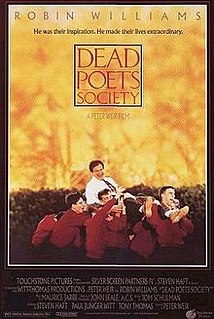
Dead Poets Society is a 1989 American teen comedy-drama film written by Tom Schulman, directed by Peter Weir, and starring Robin Williams. Set in 1959 at the fictional elite conservative Vermont boarding school Welton Academy, it tells the story of an English teacher who inspires his students through his teaching of poetry.

Theodore Robert Bundy was an American serial killer who kidnapped, raped, and murdered numerous young women and girls during the 1970s and possibly earlier. After more than a decade of denials, he confessed to 30 homicides, committed in seven states between 1974 and 1978. His true victim total is unknown, and could be much higher.

The Gupta Empire was an ancient Indian empire which existed from the early 4th century CE to late 6th century CE. At its zenith, from approximately 319 to 467 CE, it covered much of the Indian subcontinent. This period is considered as the Golden Age of India by historians. The ruling dynasty of the empire was founded by the king Sri Gupta; the most notable rulers of the dynasty were Chandragupta I, Samudragupta, and Chandragupta II, also known as Vikramaditya. The 5th-century CE Sanskrit poet Kalidasa credits the Guptas with having conquered about twenty-one kingdoms, both in and outside India, including the kingdoms of Parasikas, the Hunas, the Kambojas, tribes located in the west and east Oxus valleys, the Kinnaras, Kiratas, and others.
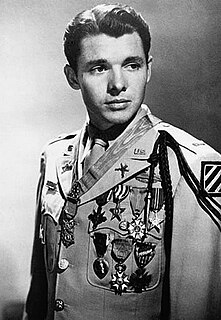
Audie Leon Murphy was an American soldier, actor, songwriter, and rancher. He was one of the most decorated American combat soldiers of World War II. He received every military combat award for valor available from the U.S. Army, as well as French and Belgian awards for heroism. Murphy received the Medal of Honor for valor that he demonstrated at the age of 19 for single-handedly holding off a company of German soldiers for an hour at the Colmar Pocket in France in January 1945, then leading a successful counterattack while wounded and out of ammunition.
The incumbent is the current holder of an office or position, usually in relation to an election. For example, in an election for president, the incumbent is the person holding or acting in the office of president before the election, whether seeking re-election or not. In some situations, there may not be an incumbent at time of an election for that office or position, in which case the office or position is regarded as vacant or open. In the United States, an election without an incumbent is referred to as an open seat or open contest.

Vlad III, commonly known as Vlad the Impaler or Vlad Dracula, was Voivode of Wallachia three times between 1448 and his death in 1476/77. He is often considered one of the most important rulers in Wallachian history and a national hero of Romania.
The 1989 NFL season was the 70th regular season of the National Football League. Before the season, NFL commissioner Pete Rozelle announced his retirement. Paul Tagliabue was eventually chosen to succeed him, taking over on November 5.

The Revolutions of 1989 formed part of a revolutionary wave in the late 1980s and early 1990s that resulted in the end of communist rule in Central and Eastern Europe and beyond. The period is often also called the Fall of Communism, and sometimes the Fall of Nations or the Autumn of Nations, a play on the term Spring of Nations that is sometimes used to describe the Revolutions of 1848.

The dissolution of the Soviet Union (1988–1991) was the process of internal political, economic and ethnic disintegration within the USSR which resulted in the end of its existence as a sovereign state. It was an unintended result of General Secretary Mikhail Gorbachev's effort to reform the Soviet political and economic system, in an attempt to end the Era of Stagnation. In late 1991, the leaders of three of the Union's founding and largest republics declared that the Soviet Union no longer existed, and 11 more republics joined them shortly thereafter. Gorbachev had to resign his office as president and what was left of the parliament to formally acknowledge the Union's collapse as a fait accompli.

1989 is the fifth studio album by American singer-songwriter Taylor Swift. It was released on October 27, 2014, by Big Machine Records. Following the release of her genre-spanning fourth studio album Red (2012), noted for its pop hooks and electronic accents, the media questioned the validity of Swift's status as a country artist. Inspired by 1980s synth-pop to create a record that shifted her sound and image from country to mainstream pop, Swift enlisted Max Martin as co-executive producer, and titled her fifth album after her birth year as a symbolic rebirth of her artistry.
References
- ↑ Number One Singles of 1989